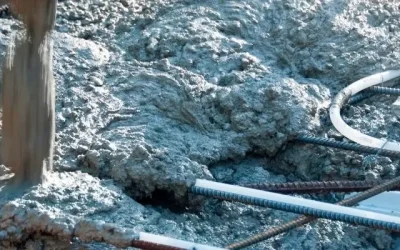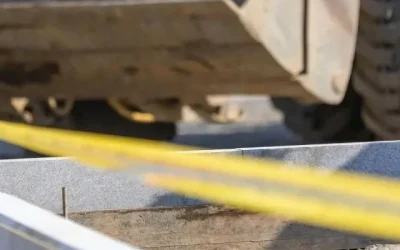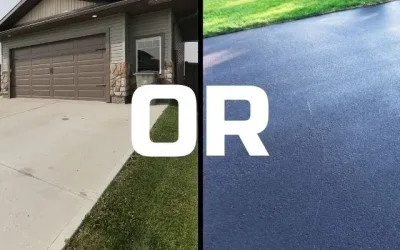Deciding between concrete or pavers for your patio or outdoor walkway? Both concrete and pavers are widely used for outdoor areas and each comes with its own set of benefits. With much of Queensland known for hot days and sudden downpours, it’s worth choosing a surface that can handle the weather and still look good. Some options are more budget-friendly, while others offer more design flexibility or a longer lifespan. In this post, we’ll compare concrete and pavers across key factors like cost, appearance, durability, and maintenance so you can weigh up the pros and cons and make the best choice for your home.
If you’re building a new driveway you may want to check out our asphalt vs concrete comparison blog post.
Visual Appeal
Concrete
Concrete gives you a clean and modern finish that suits a wide range of home styles. You can keep it simple with plain grey or add some flair using colour, stamping, or decorative finishes. Stained or textured concrete can bring in a bit more character, especially around outdoor entertaining areas. However, it still leans toward a more uniform look, which may be a little too plain for some homeowners.
Pavers
Pavers offer a lot more flexibility when it comes to design. Available in different shapes, colours, and materials from concrete, brick, to natural stone, they allow you to create patterns and textures that suit your space. Whether you’re after something timeless or bold and eye-catching, pavers can help you customise the look of your outdoor area to match the vibe of your home and garden.
If you’re after a streamlined and minimal look, concrete will do the job well. But if adding texture, contrast, or personality to your outdoor space is high on your list, pavers offer more creative freedom.
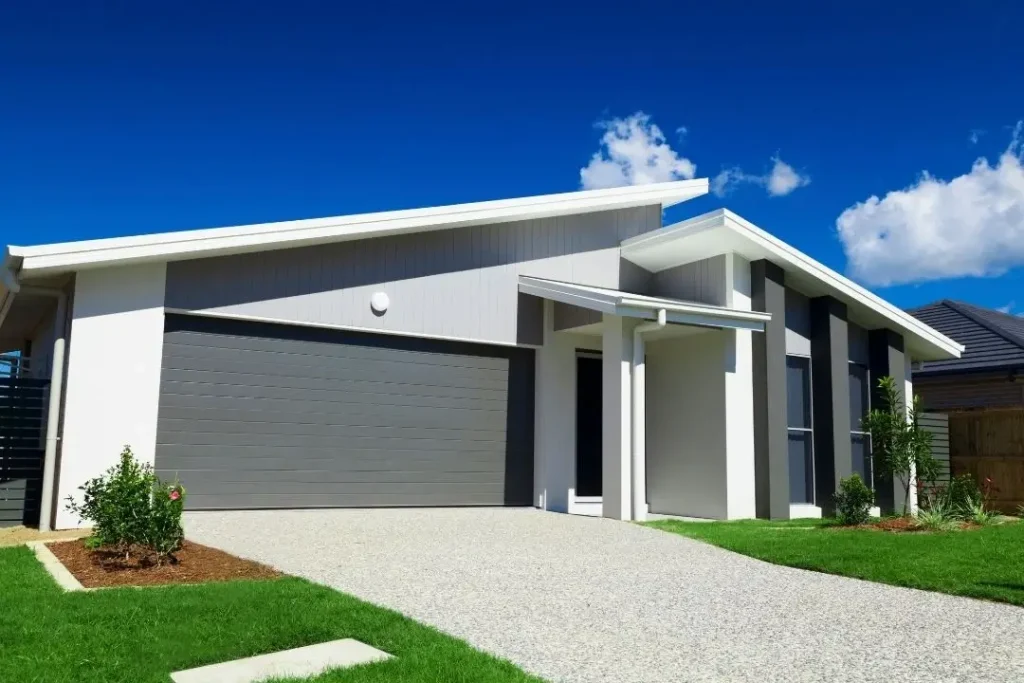
Cost
Concrete
Concrete is often a more budget-friendly choice, especially for larger areas like driveways or patios. Standard concrete installation usually ranges from $90 to $130 per square metre supplied and installed. Decorative options like coloured or stamped concrete will bump the price up, but overall, concrete is one of the most affordable solutions.
Pavers
Pavers tend to cost more upfront. Prices can range from around $120 to $200+ per square metre for pavers, base preparation and installation. The type of pavers will heavily influence the total cost of the job. Concrete pavers are generally more affordable, while natural stone or clay options sit at the higher end.
If you’re working with a tight budget or covering a large space, concrete may be the more cost-effective option. But if you’re willing to invest more in visual impact and long-term flexibility, pavers can offer real value in the right setting.
Installation Time
Concrete
Concrete is generally quicker to install. Once the formwork is prepared, the concrete is poured in one go and left to cure, usually for 24 to 48 hours. It’s a straightforward process, especially when handled by professional concrete contractors who can manage the prep and pour efficiently.
Pavers
Pavers take a bit more time and care. Each one is laid individually, which means more labour and precision, especially if you have a pattern in mind. The ground needs to be properly levelled and compacted beforehand to avoid shifting, which can be a major factor in areas with soft or sandy soils.
Concrete wins for speed and simplicity. If time is a major factor or you’re under a tight deadline, it’s the faster choice. On the other hand, pavers take longer but offer a more detailed finish with more design control.
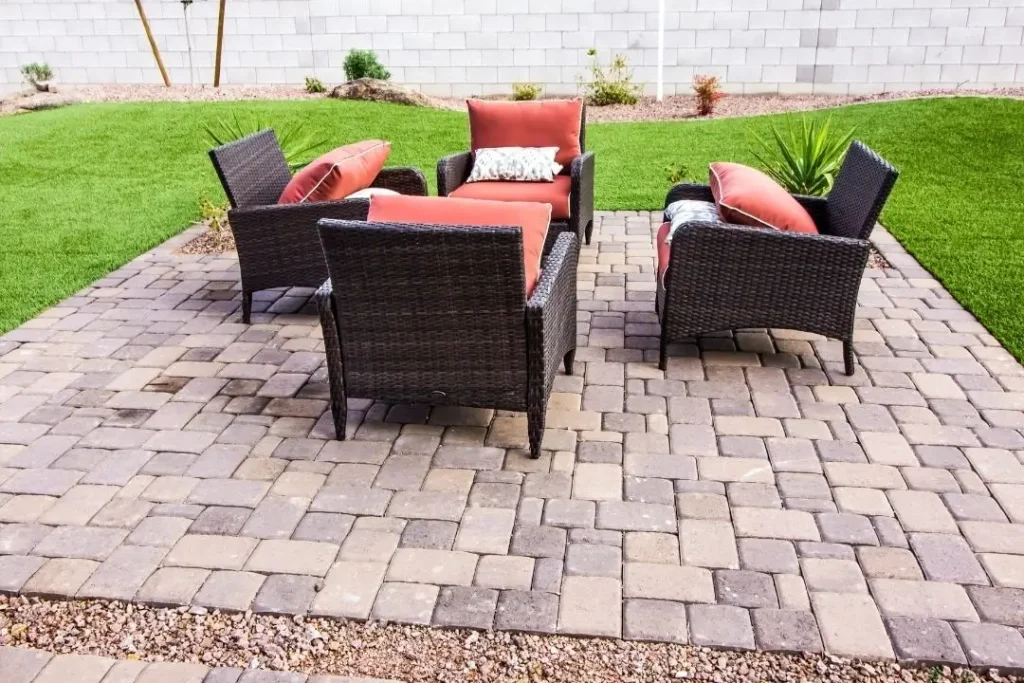
Durability
Concrete
Concrete is long-lasting and strong, especially when installed correctly and sealed regularly. However, it can crack over time. Once a crack appears, it can be difficult to repair without it standing out. Concrete can also stain easily if not properly sealed, especially if it’s in a high-traffic area.
Pavers
Pavers are incredibly durable and built to handle pressure. Because they’re made up of individual units, they offer more flexibility underfoot. So instead of cracking, they’re more likely to shift slightly if the ground moves.
Both options are durable, but pavers have the edge when it comes to withstanding movement and extreme conditions. While concrete is still a reliable surface, pavers tend to hold up better over time in areas prone to weather extremes or shifting ground.
Maintenance and Repairs
Concrete
Concrete is fairly low-maintenance, but it does need some upkeep to stay looking good, especially in Queensland’s humid climate. Sealing it every few years helps protect it against stains, weathering, and surface cracks. The tricky part is repairs. If concrete cracks or gets damaged, fixing it can be difficult and often leaves a visible patch. If there are serious damages, large sections may need to be replaced or the entire slab will be replaced.
Pavers
Pavers require more ongoing maintenance due to the frequent weed growth that occurs between joints. There are many products on the market that can help reduce the need for weeding, but they do not permanently address this issue. Additionally, cleaning paved surfaces, though simple, is more involved due to the added texture of individual units compared to one smooth slab. Having said that, pavers are much easier to deal with when it comes to repairs. If one cracks, shifts, or stains, you can simply replace that individual piece without affecting the rest of the surface. Like concrete, pavers benefit from occasional cleaning and sealing to prevent moss or grime buildup.
When it comes to long-term maintenance, pavers require periodic weeding to keep them looking sharp; however, when damage or repairs are needed, it’s a repair-friendly option. Concrete requires less frequent maintenance; however is less forgiving when damage occurs.
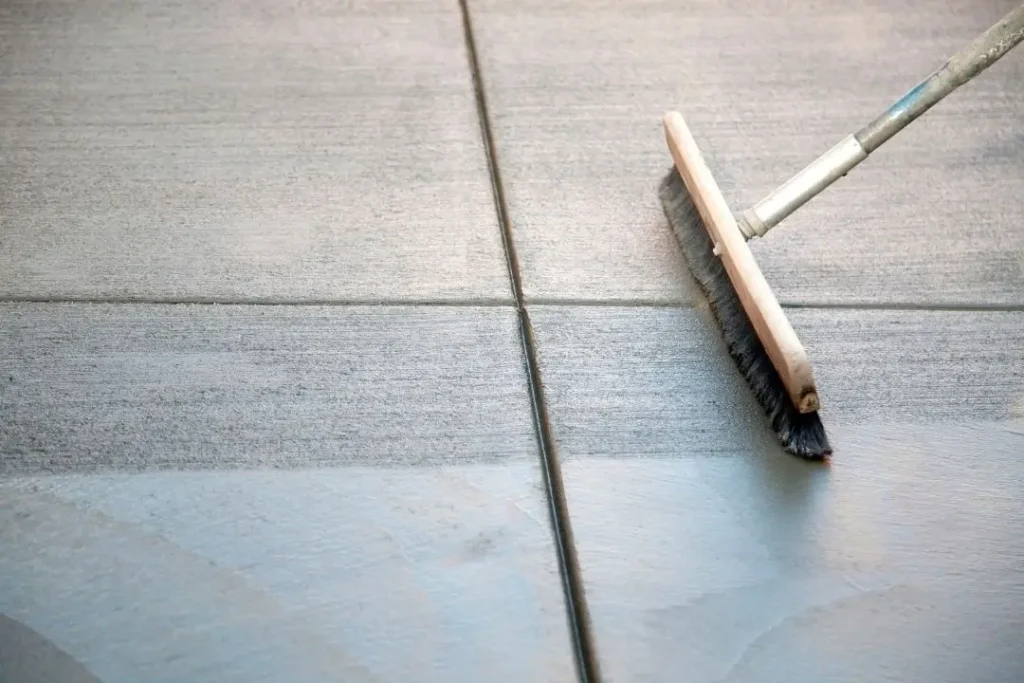
Slip Resistance and Safety
Concrete
Standard concrete can be quite slippery when wet, especially if it has a smooth or polished surface. However, there are ways to improve grip. A broom finish creates texture underfoot, while exposed aggregate concrete is a great option for outdoor areas. It looks good but also offers a better grip, making it a popular choice around pools, driveways, and walkways. Not sure which finish suits your space best? Read our blog post on how plain concrete compares to exposed aggregate.
Pavers
Pavers naturally provide good slip resistance thanks to their textured surfaces and the materials used. This makes them a reliable option for areas where safety is important, particularly in wet or high-traffic areas.
Both options can be made safe underfoot. When it comes to concrete, make sure you choose the right finish to ensure a slip-free surface.
Drainage
Concrete
Concrete creates a solid, continuous surface, which can make drainage more challenging if it’s not properly planned. Without correct grading or the addition of drainage channels, water can pool on the surface, which is something you should watch out for during heavy downpours.
Pavers
Pavers naturally allow for better water drainage. The small gaps between each piece let rainwater filter through, reducing the surface runoff and preventing puddling. This makes it useful in areas prone to pooling or where drainage is essential like sloped driveways or patios.
Pavers generally handle water better thanks to their built-in drainage gaps. Concrete can be effective, too but it requires proper planning and possibly extra features to manage water flow.
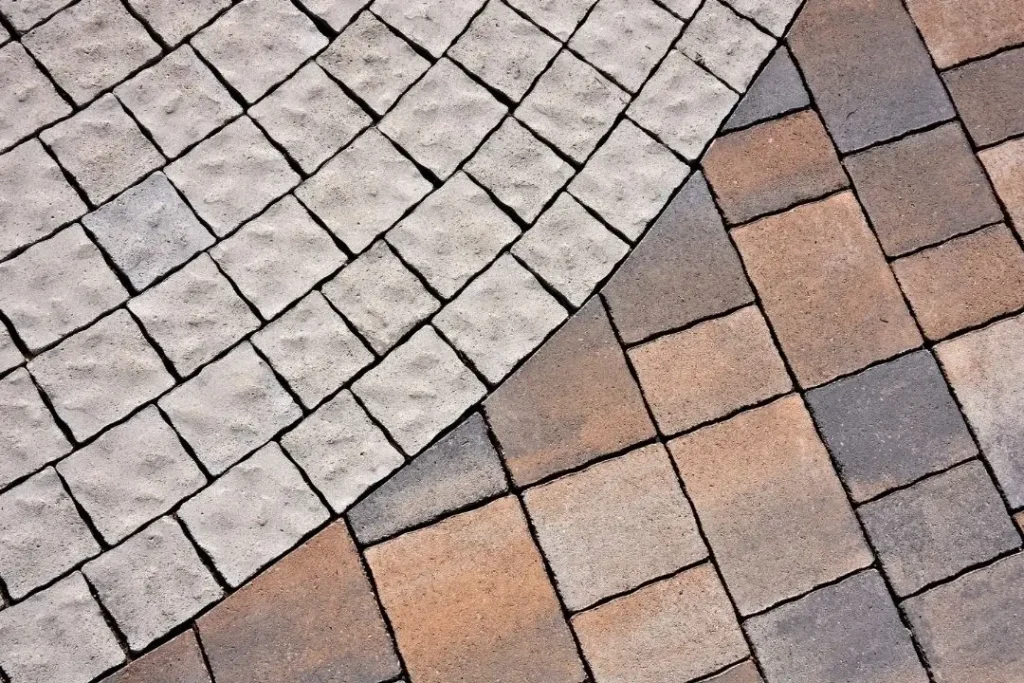
Longevity
Concrete
With proper care, concrete can last around 20 to 50 years. Regular sealing and maintenance help extend its lifespan, but exposure to heat, rain, and ground movement can take a toll, especially in areas where soil conditions or weather patterns can be volatile. Cracks and surface wear may appear over time, shortening its usable life if not addressed.
Pavers
Pavers are built for the long haul, typically lasting 30 to 50 years or more. Because they’re made up of individual units, they’re less prone to large-scale damage. If one section wears out or shifts, you can simply replace a few pieces without redoing the whole area.
Both materials are long-lasting, but pavers usually have the edge in terms of overall lifespan and resilience. If you’re planning for the long term and want something that’s easier to maintain over the years, pavers are a solid choice.
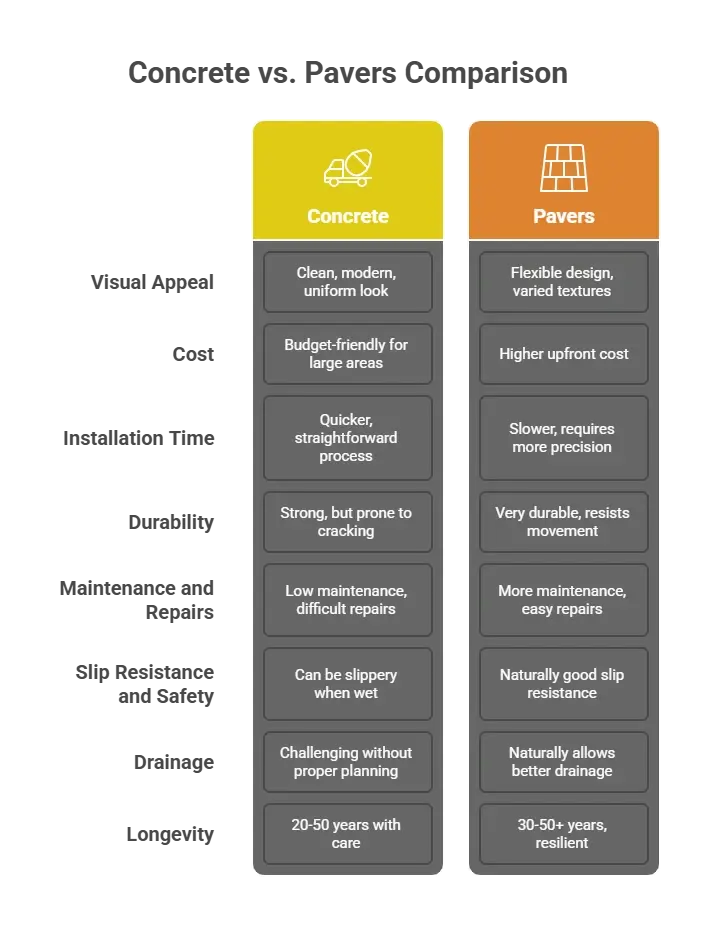
Conclusion
When it comes to choosing between concrete or pavers for your outdoor space, it really depends on what matters to you. Concrete is a great choice if you’re after a more cost-effective, quick-to-install surface that still looks clean and modern. On the other hand, pavers offer more design flexibility, easier repairs, and better performance over the long run. In the end, you have to consider your budget, your preferred look, and how much maintenance you’re happy to commit to. Both options have their strength, so it’s about finding the right fit for your space and lifestyle.
If you decide that concrete is the best option for your driveway, patio, or path, we’re the team to call. With years of experience across the Caboolture region from the Sunshine Coast down to Northlakes, we deliver quality concrete workmanship and a strong focus on customer satisfaction. Call us on (07) 5408 6099 to get a free quote for your concreting project!


